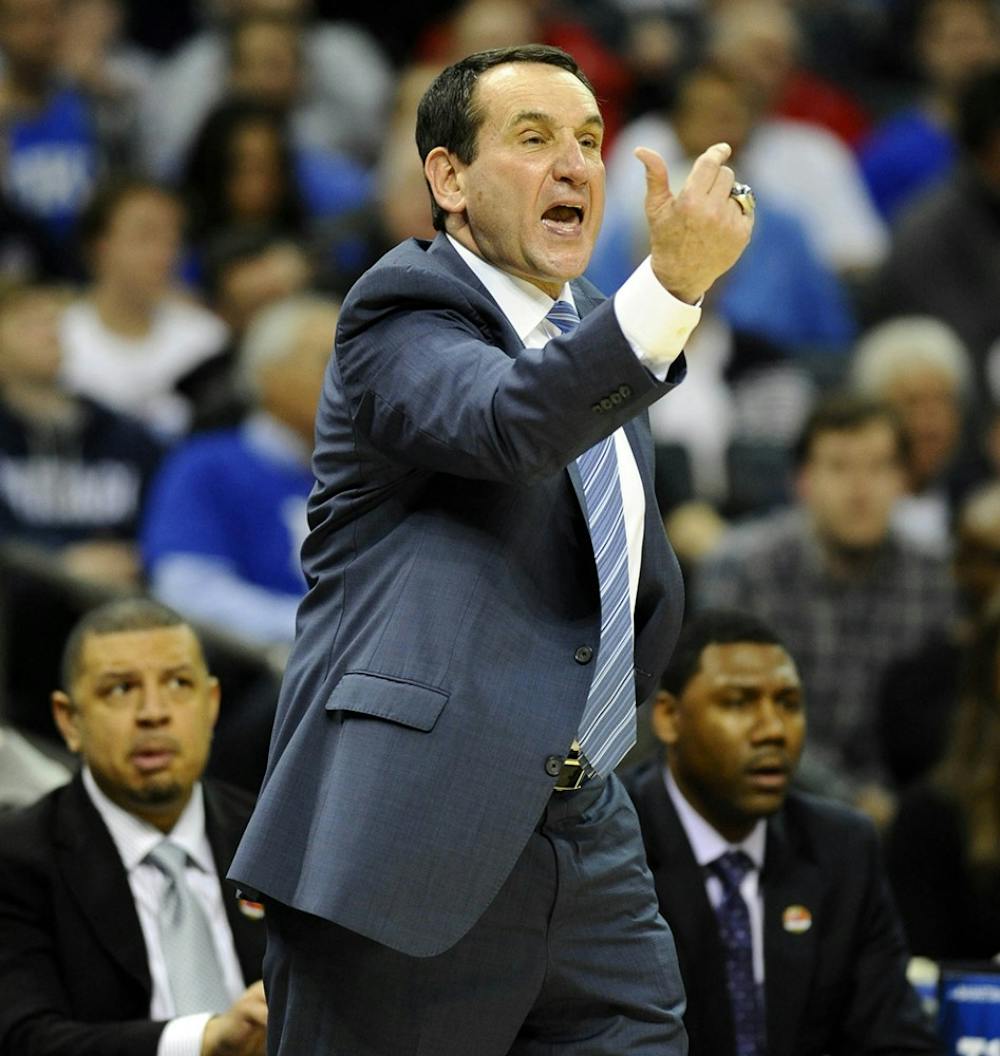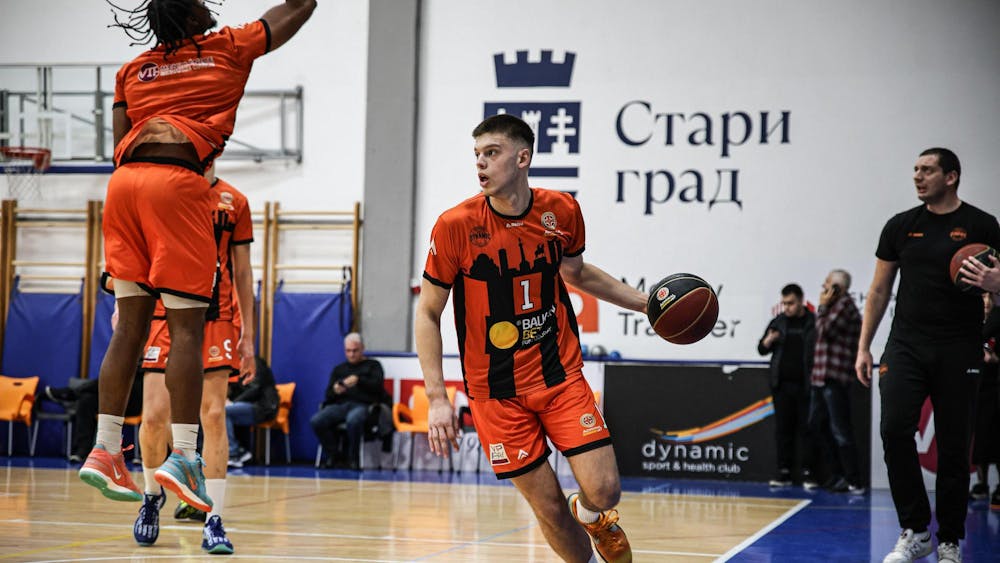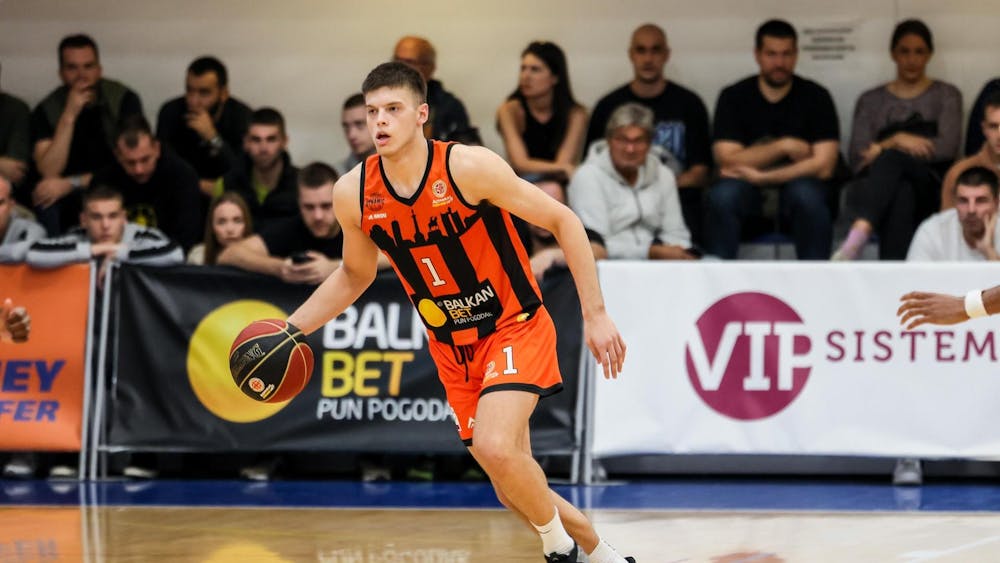After playing for former college coach Bob Knight at West Point, Krzyzewski stayed in touch with Knight during his five years of service in the Army. Once he resigned from the Army as a captain in 1974, Krzyzewski had an offer waiting for him from Knight, who had taken the IU head coaching job in 1971.
“I wanted to coach,” Krzyzewski said in a statement provided to the IDS by Duke. “And I also thought that I wanted to be a college coach, and that if I could get my MBA, that would be really important as far as running a program.”
IU provided him with the opportunity to observe college basketball at its highest level while also learning about the business side of an athletic department and its basketball program.
Krzyzewski left after one season to become the head coach of Army, but his lone winter in Bloomington was a memorable one. The Hoosiers went undefeated in Big Ten play and finished the season with a 31-1 record, as IU fell only to Kentucky in the Elite Eight.
IU’s national title hopes were set back when then-sophomore forward Scott May, the team’s second leading scorer, broke his arm in the regular season finale against Purdue.
Krzyzewski credits the Hoosiers’ 1974-75 team as being the best IU team of its era, even though Knight hung a national championship banner in the rafters of Assembly Hall in 1976.
“They were in a position to win it that year,” he said. “It was incredibly exciting to be there.”
As a graduate assistant, Krzyzewski was unable to participate in on-court coaching, but he was a staple in IU’s practices and provided a friendly ear for Hoosier players given their proximity in age. IU players respected him because he had played for Knight at Army with no idea that a future Hall of Fame coach was in their midst.
“We didn’t know we were hanging out with arguably, now, one of the greatest college coaches ever,” former Hoosier Steve Green said. “At the time he was a grad assistant, and, more importantly, he was one of Coach Knight’s favorite players at Army.”
Knight’s players at Army were the gold standard for IU players in the ‘70s. The Hoosiers prided themselves on working as hard as the cadets in West Point, Green said.
One day in practice, Green and Krzyzewski were leaning against the backstop of one of the basketball hoops during a break in practice.
“My God, Coach Knight never worked us this hard at Army,” Krzyzewski told Green, who was flabbergasted.
“I looked at him and I go ‘Woah, wait a minute,’” Green said. “That’s all we’ve ever heard was these horrible stories, and we were always trying to impress Coach Knight that we were as tough as his Army guys, very honestly.”
Krzyzewski’s relationship with IU’s players wasn’t limited to the practice court. Wherever IU traveled, so did the bond between the players and their graduate assistant.
Dr. Steve Ahlfeld, a senior in 1974-75 who is now IU’s team orthopedic surgeon, recalled the team’s preseason tour of Indiana during his final year of college.
IU traveled to numerous cities in the state, including Fort Wayne, Evansville and Newcastle, to play intersquad scrimmages. The team and its coaching staff, including Krzyzewski, would travel by bus to and from gyms across the state to allow Hoosier fans to see their team up close and personal.
Krzyzewski would use the road trips to talk with IU’s players about what they had been working on to improve their games, Ahlfeld said.
“I think it allowed a little different kind of interaction than maybe you would have with the rest of the coaching staff,” Ahlfeld said. “That was a little more interpersonal interaction than what you would have with someone who was a formal member of the coaching staff. He was always great to talk with.”
The bus rides were short-lived, however, as Krzyzewski left Bloomington in 1975 to return to his alma mater.
He spent five seasons at the helm of West Point’s basketball program before accepting the head coaching job at Duke, where he has won five national championships and nearly 1,000 games.
As a product of Knight’s coaching tree, Krzyzewski’s roots trace back to Army and IU, where he observed “The General” adapt in his approach to coaching. At IU, Knight still had his intense passion for the game and commitment to preparation, but he adjusted to the increased level of talent and competition of the Big Ten, Krzyzewski said.
“He adapted in how he taught the defense, team man-to-man defense, and he really adapted in how he ran offense because he now ran motion offense,” Krzyzewski said. “How he coordinated all that kind of opened up my eyes to adaptability. You can change, and it’s okay.”
Krzyzewski has carried that lesson of adaptability with him to Duke, especially regarding recruiting. Krzyzewski’s first one-and-done player was Corey Maggette in 1999, and only two Duke freshmen had declared for the NBA draft through 2010, when Krzyzewski won his fourth title.
Since then, Duke has produced six one-and-done players, including three who left school early last spring after winning the national championship.
Krzyzewski was unable to earn an elusive national championship ring in Bloomington, but he still regards his time at IU highly.
“They love basketball,” he said. “I mean there’s no place that loves basketball more than in the state of Indiana and at Indiana University.
“I saw college basketball at its highest level. I mean inside of college basketball — the program, the expectation level and the action to make it work. That’s incredible experience, and we obviously have been able to do that here, but having that snapshot of it for a year and being a part of it — a small part — but seeing all the parts, that was huge for my development as a coach.”
Krzyzewski’s current affiliations lie with the Blue Devils and the U.S. men’s national team, but he will always be part of the IU brotherhood, according to Green, IU’s leading scorer as a senior in 1974-75.
After IU won the national championship in 1987 in New Orleans, Knight arranged a big buffet dinner for the former IU players who were in town.
Krzyzewski was there too.
“We look at him as a brother to tell you the truth, more than as this famous coach because he was part of the family and he knows what that family is,” Green said. “It’s just kind of passed along for those players who played for Coach Knight that were just one big family. We’re very proud — always have been very proud — of Mike’s success and can really understand how hard he’s worked at that and how disciplined he is at doing the right things, not only for Duke but for our country as head coach of the Olympic teams too.”
Krzyzewski observed that level of work ethic and discipline from the sidelines of Assembly Hall and it stuck with him, Ahlfeld said.
The two men live a few hundred miles apart, and the busy schedules of their respective college basketball programs prevent them from reminiscing often, but when IU and Duke meet, Krzyzewski’s conversations with Ahlfeld go in a familiar direction.
“He always goes back to that same thing, ‘I just remember how hard you and that whole team really played and how tough-minded you were as a team, and I’ve never forgotten that,’” Ahlfeld said, recounting exchanges with Krzyzewski. “That’s always good to know that Indiana basketball has left its long-standing mark on Coach Mike Krzyzewski.”






